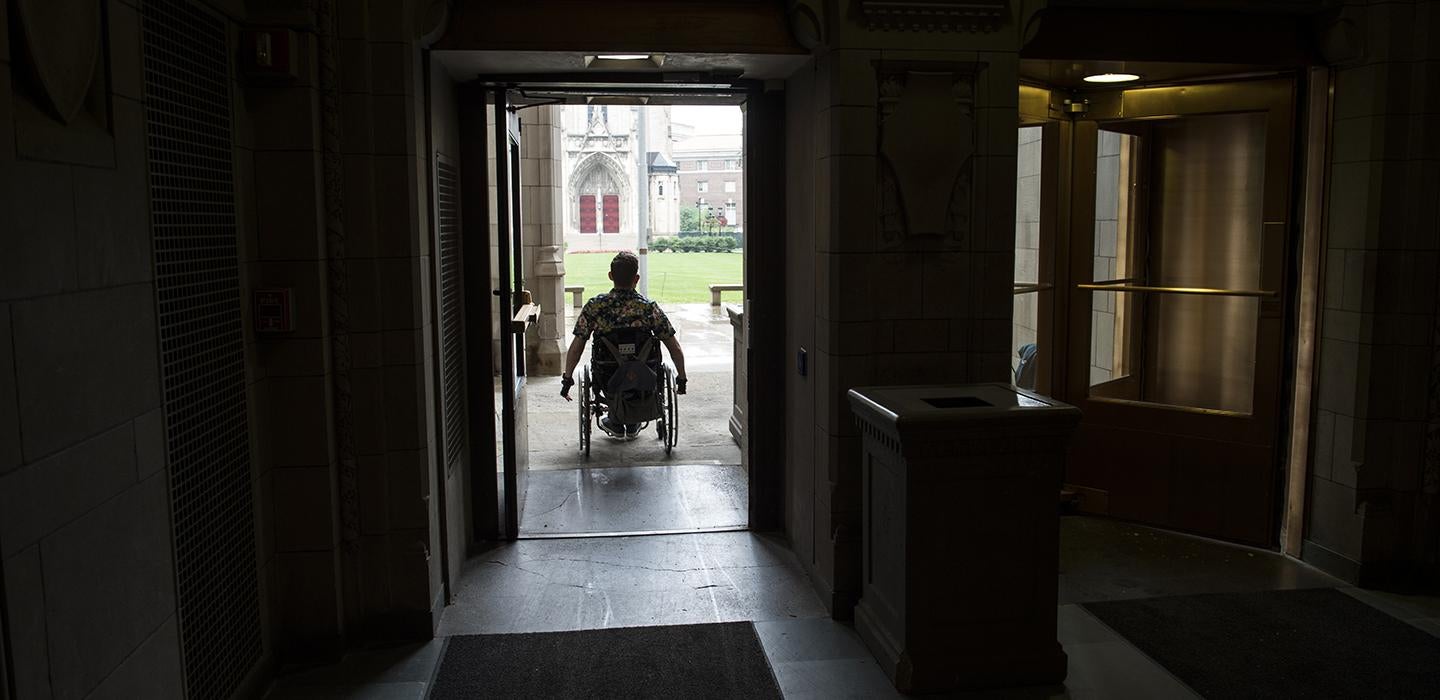
Subscribe to Pittwire Today
Get the most interesting and important stories from the University of Pittsburgh.As seniors and people with disabilities have navigated services and supports throughout the COVID-19 pandemic, at-home care has become increasingly important. Inadequate pay for direct service workers and increased vacancy rates during the pandemic have led to a lack of continuity of care and some people with disabilities and older adults going without care and supports.
During a Sept. 13, 2021, virtual event at 7 p.m., U.S. Sen. Bob Casey will make the case to the University of Pittsburgh community that investment in home- and community-based services is necessary to support opportunity and quality of life for those who receive these services as well as those who provide them.
The lecture, “Disability Policy: Beyond the Pandemic,” will address the pandemic’s impact on the disability community, particularly the need to bolster home and community-based services. The talk is part of the Thornburgh Family Lecture Series on Disability Law & Policy and is hosted by the Dick Thornburgh Forum for Law & Public Policy at the University of Pittsburgh’s Institute of Politics.
Research shows that the vast majority of Americans would prefer to receive care services at home. Today, more than 3.5 million older adults and people with disabilities receive Medicaid services inside their own home or community. But some states cap the number of individuals who may receive services, which has left almost 820,000 Americans on wait lists. The actual number of people eligible for and wanting home-based services is likely much greater.
“For millions of families, and especially for women, home and community-based services are a bridge to work and a bridge to economic security. A meaningful investment in these services would not only enable more older adults and people with disabilities to remain in their homes, stay active in their communities and lead independent lives, it would also create jobs and lead to higher wages for care workers, who are predominantly women and people of color. My legislation, the Better Care Better Jobs Act, is critical to advancing equity, spurring economic recovery and improving quality of life for older adults and people with disabilities,” said Sen. Casey.
Sen. Casey serves on four committees including the Senate Finance Committee, Senate HELP Committee and Senate Select Committee on Intelligence. He is also the chair of the Special Committee on Aging, where his agenda is focused on policies that support seniors and individuals with disabilities.
“Senator Casey is widely respected as one of this country’s most capable and committed champions for the rights of the disability community. His remarks regarding our growing needs and the policies that might effectively address them will be thought-provoking,” said Mark Nordenberg, director of the Dick Thornburgh Forum for Law & Public Policy and chancellor emeritus. “Sen. Casey also is a ‘favorite son’ of Pennsylvania, and it will be wonderful to welcome him back to the University of Pittsburgh, even virtually. In fact, because this event is virtual, we hope to attract viewers who would not otherwise be able to join us.”
Nordenberg will introduce Sen. Casey and ask questions posed by members of the audience. David Thornburgh, son of the late Gov. Dick Thornburgh and Ginny Thornburgh, will also provide an overview of this lecture series and describe a $5,000 award available to University of Pittsburgh students who are making a difference in the lives of children and adults with disabilities.


